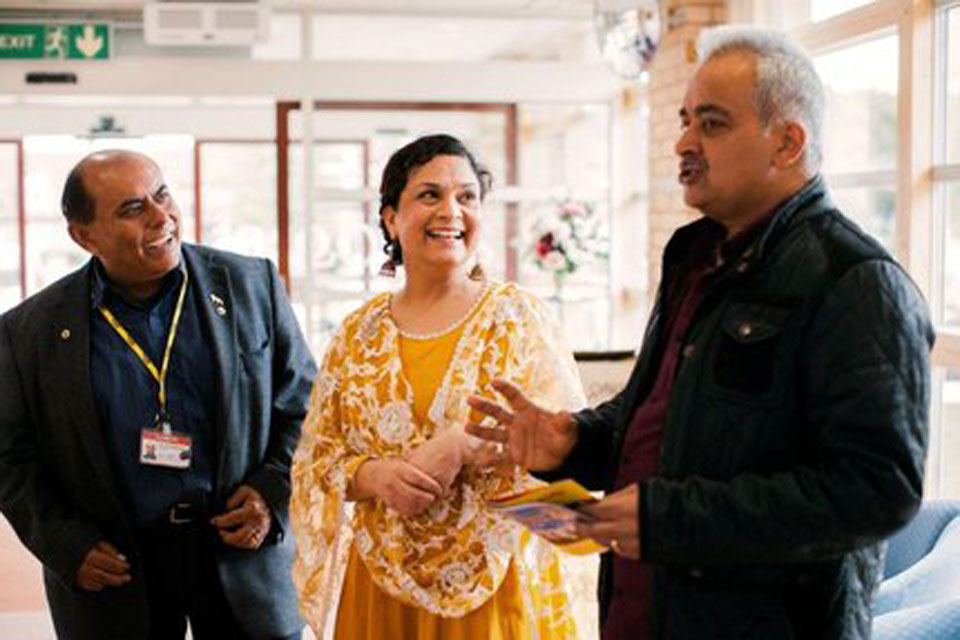LOROS Hospice, in partnership with Leicester’s Hospitals, is conducting a research study into how health professionals can improve the care for people from Black, Asian and Minority Ethnic (BAME) communities at the end of life.
The 30-month study, entitled Thinking Ahead: exploring and understanding experiences and decisions in end of life care for people from minority ethnic communities, is supported by a grant of £417,000 from the National Institute for Health Research (NIHR), which will enable LOROS researchers to better understand the needs of BAME patients and their families when they become very ill.
Professor Christina Faull, lead researcher at LOROS, said: “People from black, Asian, and minority ethnic communities tend to access end of life care services less than other patients. We want to find out more about people’s experiences, the choices that they are offered and decisions that they make. We will use our findings to train doctors and nurses in how to support patients in line with their spiritual and cultural approach to thinking ahead about the end of life.”
The Government has stated its commitment to providing excellent end of life care for all patients regardless of their background.
But previous research undertaken by LOROS Hospice suggests that patients from black, Asian, minority ethnic communities access end of life care less and later than other sections of the population, and that clinicians lack confidence in supporting them.
Professor Simon Conroy, a geriatrician at Leicester’s Hospitals and professor of geriatric medicine at the University of Leicester, said: “Planning is an important part of making sure people can be cared for in the way and in the place they prefer. But we know little about how current end of life practice fits with communities’ values and beliefs. This study will start to fill those gaps, provide insights that can improve training of clinical staff and ultimately improve care.”
Dipti Patel, who is a member of the study’s consultation group, said: “The research will hopefully raise awareness of this sensitive topic in these communities and benefit patients in the way of appropriate care. It should also help inform those around them such as carers and families.”
The study which will begin in November, will involve LOROS researchers working with colleagues from Leicester’s Hospitals and the University of Leicester as well as a whole range of partners including general practices, hospices, community trusts and clinical and academic staff from University of Nottingham and the Open University. Researchers will engage with patients from a diverse range of backgrounds as well as their families, care-givers and health professionals in Leicestershire and Nottinghamshire.
Regular updates on the study as well as blogs and videos will be shared on the LOROS website.



Leave a Reply